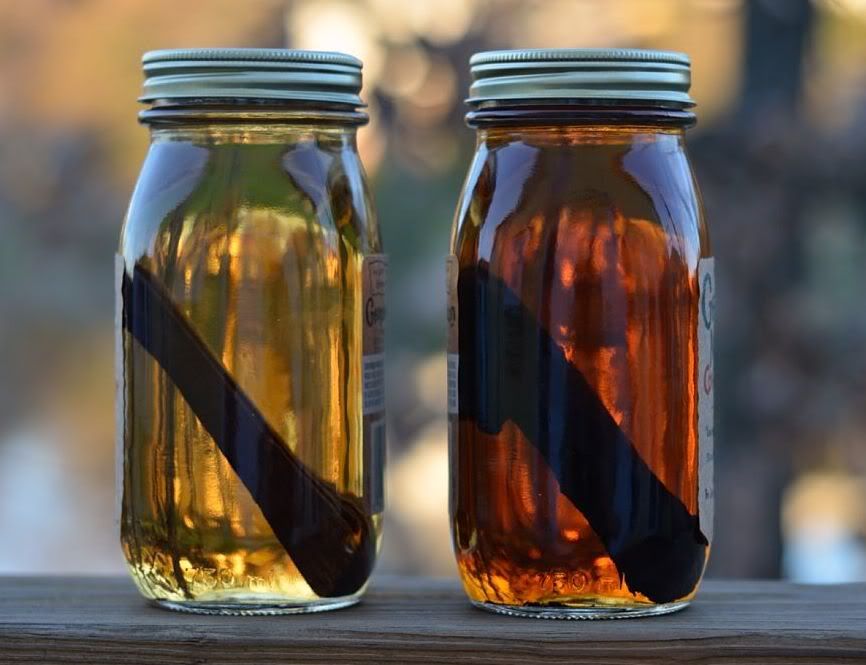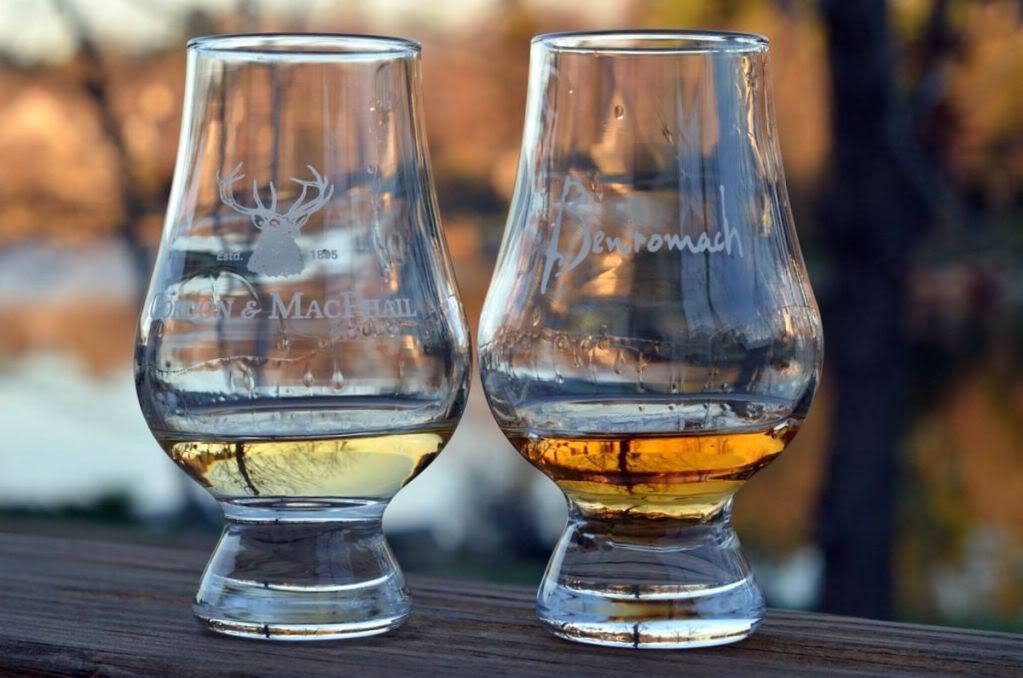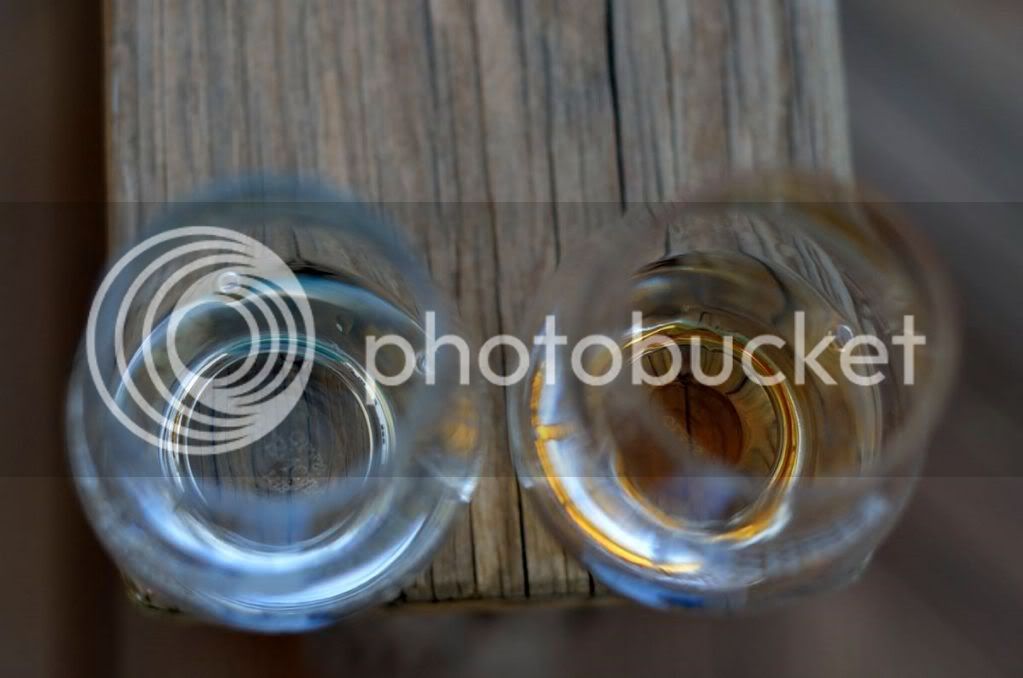Was anyone wondering how my oak conditioning experiment was going? Probably not, but I'm going to update you anyway!

If you remember, I was aging both a toasted oak stick, and a toasted and charred oak stick in two jars of corn whiskey. The color is much different as you'll see, and probably expected, but the biggest difference to me is that the the two taste completely different as well.
The corn whiskey with the toasted oak stick is much lighter in color, and the aroma is still of the corn cob and husk the white spirit had. There musty corn aroma has definitely mellowed and reduced, but there's not much oak making it into the aroma. The flavor has picked up oak though, and I was surprised by how much it tasted like scotch whisky. The corn character is all but gone from the flavor leaving mostly the light oak flavor you get in scotch. If there was a bit of peat smokiness in there, many would probably mistake it for scotch, in fact.
The corn whiskey with the toasted and charred oak is of course much darker, but the aroma and flavor are where it really shines. The aroma is smooth, sweet and the corn character is gone. In it's place are the aromas of toasted marshmallow, raisins, and caramel. It's pretty great. The flavor is similar. Much smoother than the other jar, and with much more flavor from the oak. It is the hands-down favorite for me.
Here are the pictures.


























![Craft A Brew - Safale BE-256 Yeast - Fermentis - Belgian Ale Dry Yeast - For Belgian & Strong Ales - Ingredients for Home Brewing - Beer Making Supplies - [3 Pack]](https://m.media-amazon.com/images/I/51bcKEwQmWL._SL500_.jpg)



































